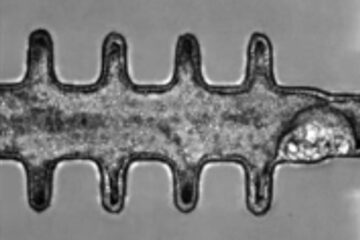Colonoscopy with normal results doesn’t reassure IBS patients

A UCLA/VA study found that irritable bowel syndrome (IBS) patients under age 50 who undergo a colonoscopy with normal results aren’t reassured about their condition or seem to have an improved quality life due to the procedure ruling out a more serious condition.
BACKGROUND: Previous studies have shown that 10 percent of all colonoscopies in the U.S. are performed for evaluation of IBS symptoms. Irritable bowel syndrome affects 15 percent of the population and is a chronic disorder characterized by recurrent abdominal pain and altered bowel habits.
IMPACT:The study results suggest that the role of colonoscopy for irritable bowel syndrome patients may be limited. Authors note that definitive guidelines to diagnose IBS don’t include colonoscopy and previous studies have shown a limited diagnostic value of colonoscopy with IBS for patients under age 50. Many doctors believed however, that a normal result may reassure the patient, which may not be the case according to this new UCLA study. Authors say the next step is a clinical trial to confirm study findings.
AUTHORS: Dr. Brennan M.R. Spiegel, director, UCLA/VA Center for Outcomes Research and Education (CORE) and assistant professor of medicine, David Geffen School of Medicine at UCLA and VA Greater Los Angeles Healthcare System, is available for interviews.
JOURNAL: The research will appear in the December issue of the journal Gastrointestinal Endoscopy. A PDF of the full study is available.
FUNDING: The study authors are supported with funding by a VA HSR&D Research Career Development Award and the National Institutes of Health.
Media Contact
More Information:
http://www.mednet.ucla.eduAll latest news from the category: Health and Medicine
This subject area encompasses research and studies in the field of human medicine.
Among the wide-ranging list of topics covered here are anesthesiology, anatomy, surgery, human genetics, hygiene and environmental medicine, internal medicine, neurology, pharmacology, physiology, urology and dental medicine.
Newest articles

Solving the riddle of the sphingolipids in coronary artery disease
Weill Cornell Medicine investigators have uncovered a way to unleash in blood vessels the protective effects of a type of fat-related molecule known as a sphingolipid, suggesting a promising new…

Rocks with the oldest evidence yet of Earth’s magnetic field
The 3.7 billion-year-old rocks may extend the magnetic field’s age by 200 million years. Geologists at MIT and Oxford University have uncovered ancient rocks in Greenland that bear the oldest…

Mini-colons revolutionize colorectal cancer research
As our battle against cancer rages on, the quest for more sophisticated and realistic models to study tumor development has never been more critical. Until now, research has relied on…





















